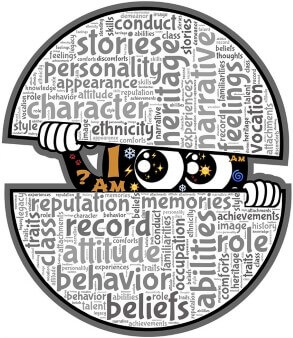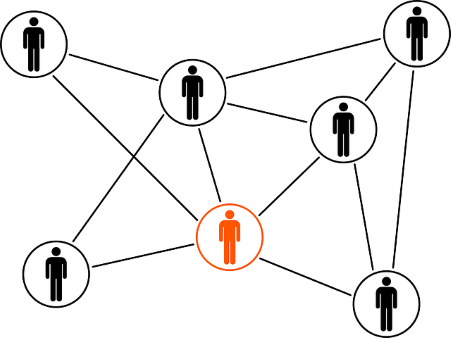One of the challenges of being retired can be maintaining a sense of relevance. Sadly, for some, perhaps more particularly those who have had high profile careers, relevance deprivation syndrome can set in. If that’s you, it’s time to find new meaning after your retirement.
So what is relevance deprivation syndrome and are you suffering from it?
Apparently the term was coined by ex Federal Minister Gareth Evans when he made his transition to the Lower House and then into Opposition. For him it described a situation where he found it difficult to get traction for his ideas. In more recent times one could suggest that both Kevin Rudd and Tony Abbott also suffered from relevance deprivation syndrome.
It’s easy to see then, that if you have held a position (paid or otherwise) where you have had significant influence and actual or perceived power, it might not feel very comfortable to suddenly lose that power. If you ‘are your job’ whether that be as a CEO or a Mother of a busy household, what do you do when that role is no longer available to you? What if you retire from your CEO/management position (or even worse lose your job) or you suddenly find yourself an empty nester. And consider that it is entirely possible that both those events could occur in close proximity to each other.
Some think that relevance deprivation is a pejorative label in the sense of ‘the bigger they are the harder they fall’, but I don’t see it that way. I see the syndrome as very real for many of us who find ourselves having difficulty finding meaning after retirement.
I have seen it in myself and in Rowan, and indeed in some close friends (but not all). Maybe it’s that the phone doesn’t ring as much, the email inbox isn’t full of requests for your expertise and assistance. Whilst you might well have been very much looking forward to retirement, you might also find that the empty days drag on and you feel bored and possibly depressed.
One of the likely outcomes is that the person experiencing relevance deprivation will almost desperately begin seeking ways to fill their days and regain a sense of self importance (or more kindly, self worth). We all need to have a sense of self worth and meaning, so that behaviour is entirely understandable. However, this is generally not the best approach.
Why do I say that? Well, it is quite likely one plunges into activities, volunteers, joins committees and begins to flex one’s muscles. There are two issues with this; first you are likely to annoy those who were there before you joined, and secondly you may just be filling your time with activities that don’t have much meaning for you.
Tips for finding meaning after retirement
The first thing you will need to do is re-orient your sense of relevance. In simplistic terms you need to make yourself relevant in new ways. Start with determining what it really was that work gave you. Money of course, but what else, where was the value for you? Self worth, creativity, connection, authority, relevance? Take some time to make your own list. You might find it helpful to use the Wheel of Life as a checklist to look at all the areas of life.

If status and power were the primary things work gave you, then you will be challenged in retirement if you continue to seek these. You will need to change your world view. No longer will your network be one where you stand at or near the top with a team reporting up to you. Instead it will look more like this:
You will no longer be able to exert power in the same way and you will need to behave like a peer and use influence rather than power. Be aware too, that if you step into a pre-existing organisational structure your attempts at influencing may not be appreciated. Humility and willingness to learn will be much more highly regarded.
Then consider whether those attributes that were positive in your previous role still serve you; or perhaps you need to find new ways to have a sense of purpose and meaning. Listen hard to your inner voice, what is it telling you? If you are hearing words such as ‘you’re washed up’, or ‘I’m better than all of them so I can show them which way is up’, then it is time to change your internal dialogue. Disengage the ego and engage your heart and soul.

Far better to put these words in place ‘I may no longer be in xyz role, but I know I still have value, I just need to take some time to figure out how best to deploy my skills’ and ‘I no longer have power due to my title but I can still positively affect the world around me, I just need to take it slowly and try a few things’.
It’s time to rebuild your identity, to acknowledge that you are no longer a CEO, Team Leader, etc., despite these being your dominant identities to date. It used to be that men in particular left work and died shortly afterwards due to the sense of relevance deprivation. These days there are so many more opportunities to find relevance – grab those opportunities with both hands.
One of the first things you should do is limit how much time you spend talking about the past glories of your illustrious career, perfect children etc. That tends to be repetitive and boring and sounds, frankly, egotistical. It also locks you into the past and meanwhile the present and the future are there for you to work with and towards.
Create a new plan
What skills do you have? How might you utilise those in retirement. Make a list of your skills and get creative with ways to use them. Brainstorm with your friends or family. Look for ways you can maintain a sense of relevance without the career you once had. Allow this to be a time of expansion rather than believing it to be a time of contraction. We prefer the term re-wirement rather than retirement – you may be retiring from work but you don’t need to retire from life.
What balance of activities do you want? Do you want to fill every day or do you want to move at a slower pace? Do you need flexibility to travel, visit family, attend to superannuation etc? Don’t over commit yourself, but don’t under commit yourself either, time management is still important in retirement.

Try some new things – join an art class, join a gym, volunteer in several different organisations (tell them you are not ready to fully commit yet), set up a coffee group with like minded others, plan some extended travel, make a priority of regular contact with friends and family, start a vegetable garden, join U3A, go back to University. Allow yourself to fail. Ideally, begin to create new networks before you retire, but it isn’t too late post retirement. Be proactive and reach out to friends and family and also create new relationships. Get social, one of the things we tend to miss most in retirement is social interaction and social interaction is increasingly being recognised as a key contributor to healthy ageing.
Revisit the Wheel of Life and look at which areas of your life might have been neglected during your working years. If you have had a big career, there is a good chance your relationships have suffered. Is it time to nurture those you love? Do be aware that if your partner is already at home when you retire, you will need to work on creating a new routine which works for both of you. Don’t expect them to take you along to everything or to sit at home with you, or necessarily join in all your activities. Look for a mix of independent and shared activities that works for you both.
Bring yourself into the here and now and if necessary rebuild your life from the ground up. You have the perfect time and opportunity to do that. Get excited about the possibilities.
Do you feel a lack of relevance due to becoming an empty nester?
Have you experienced relevance deprivation? Have you seen it in others? What tools have you found useful to create new meaning in retirement?





